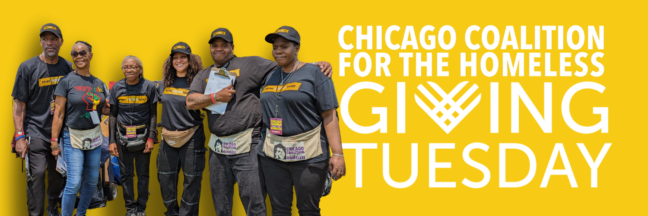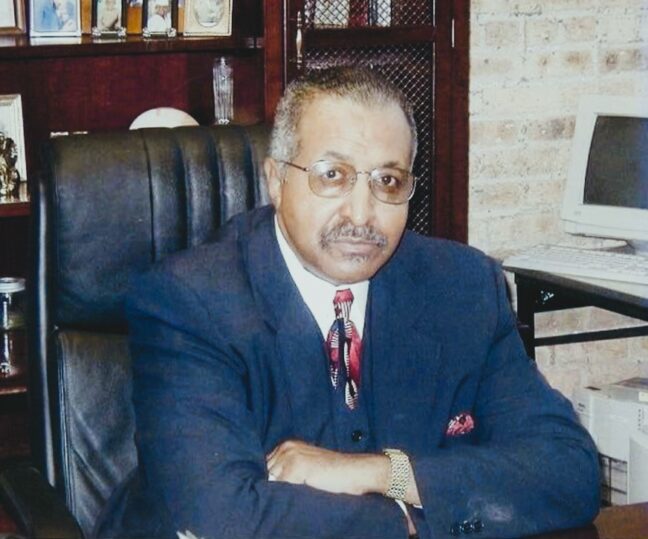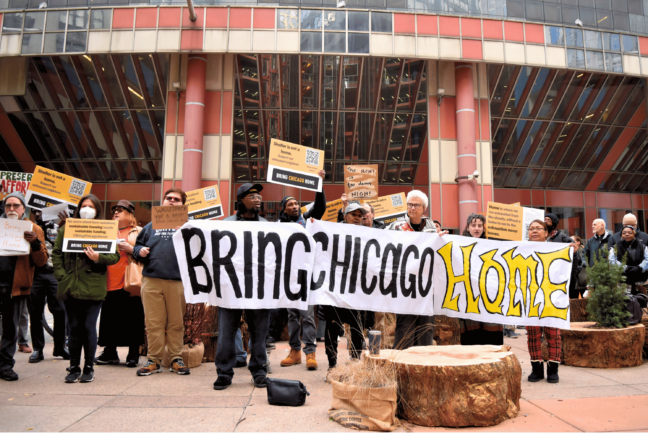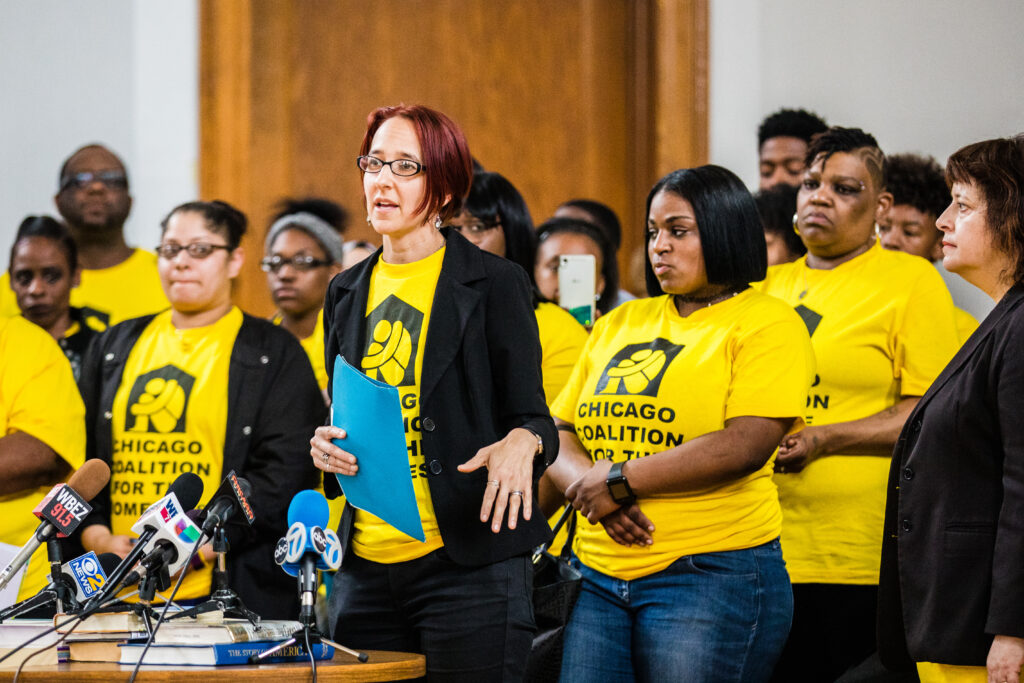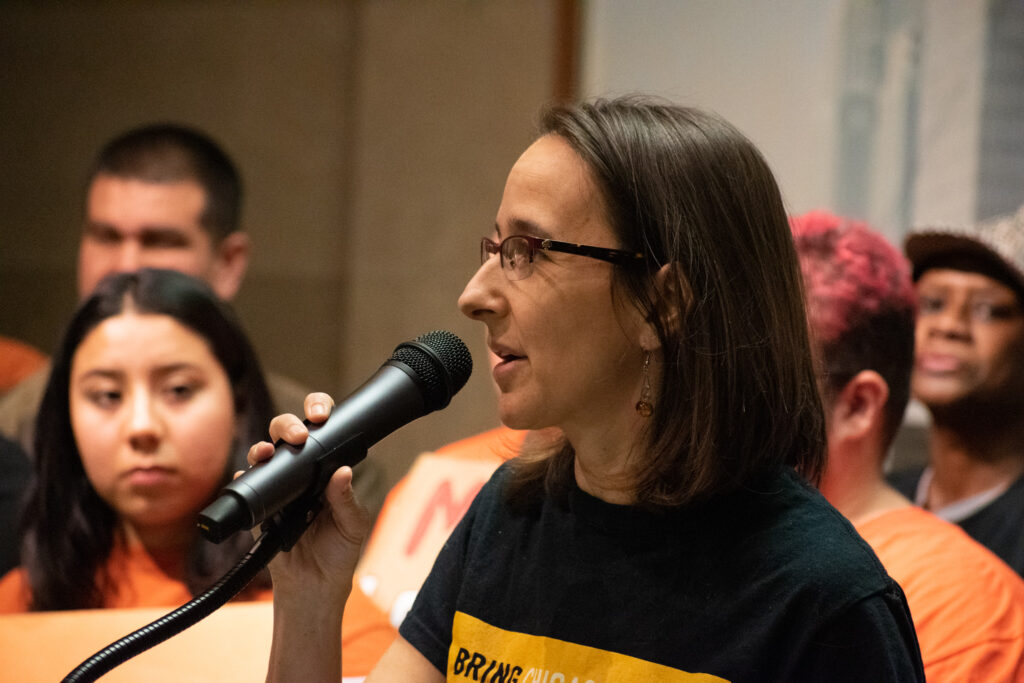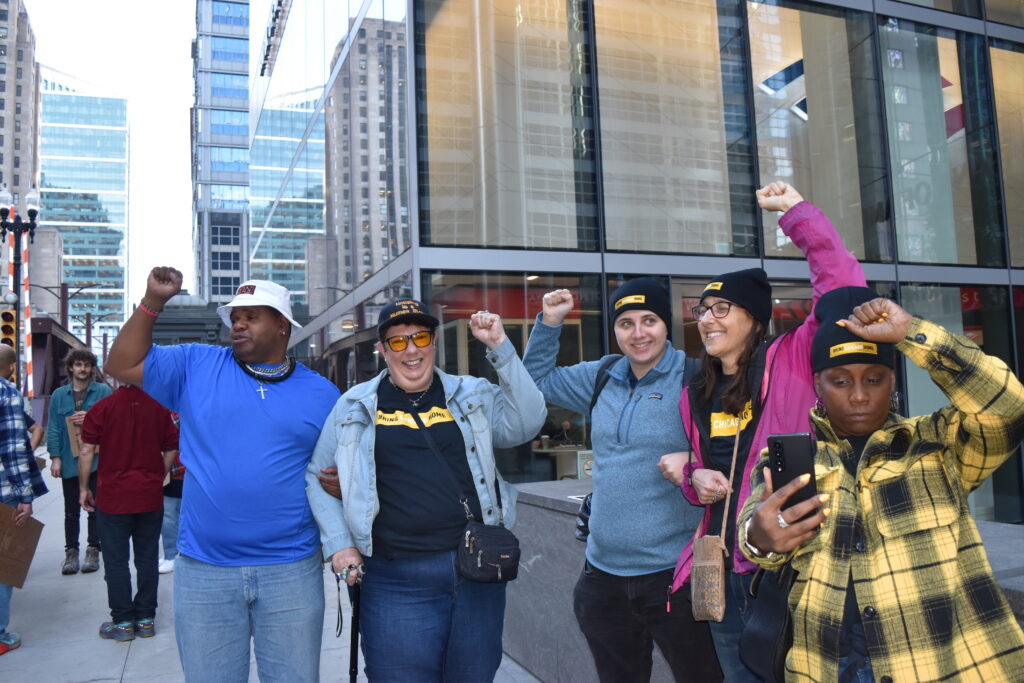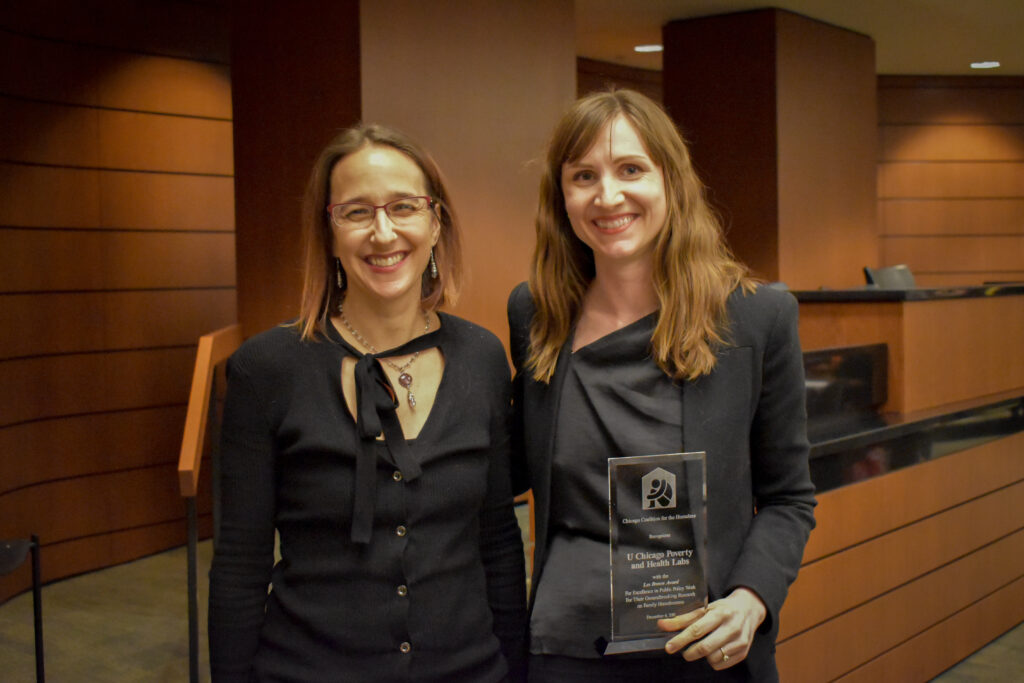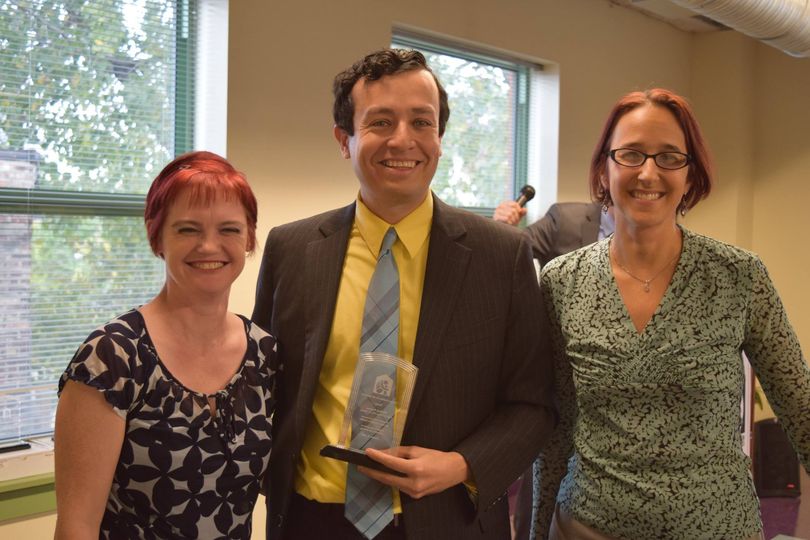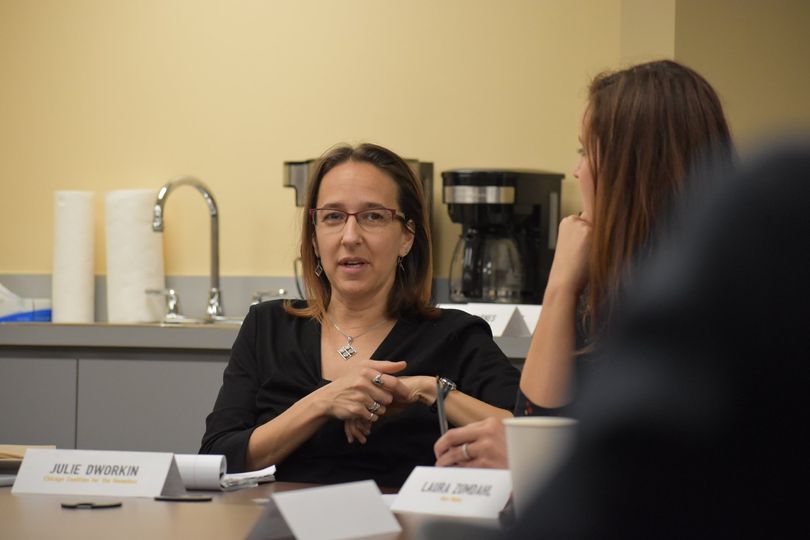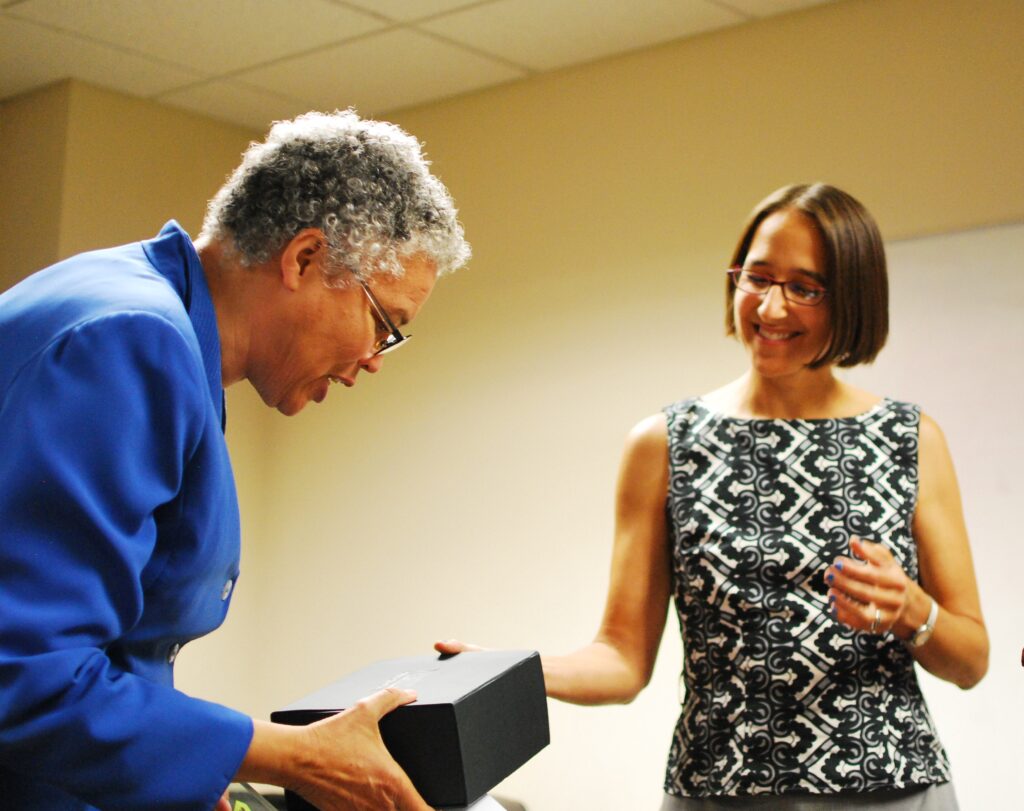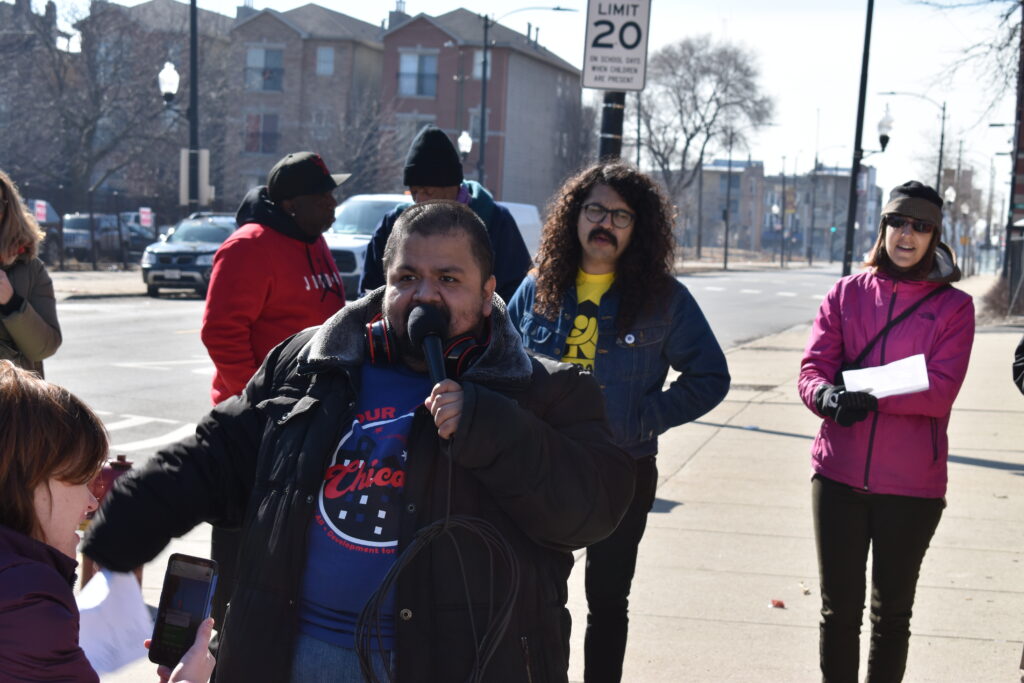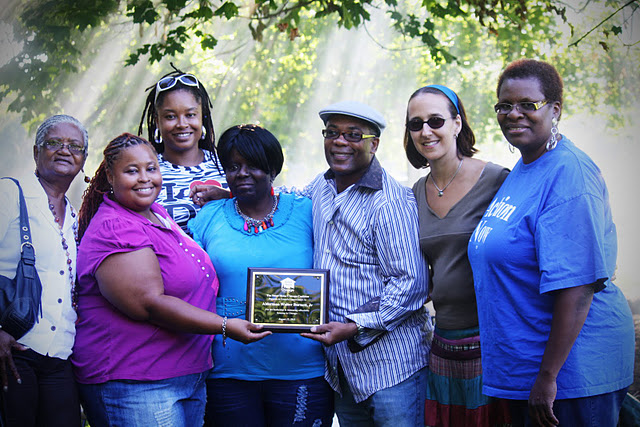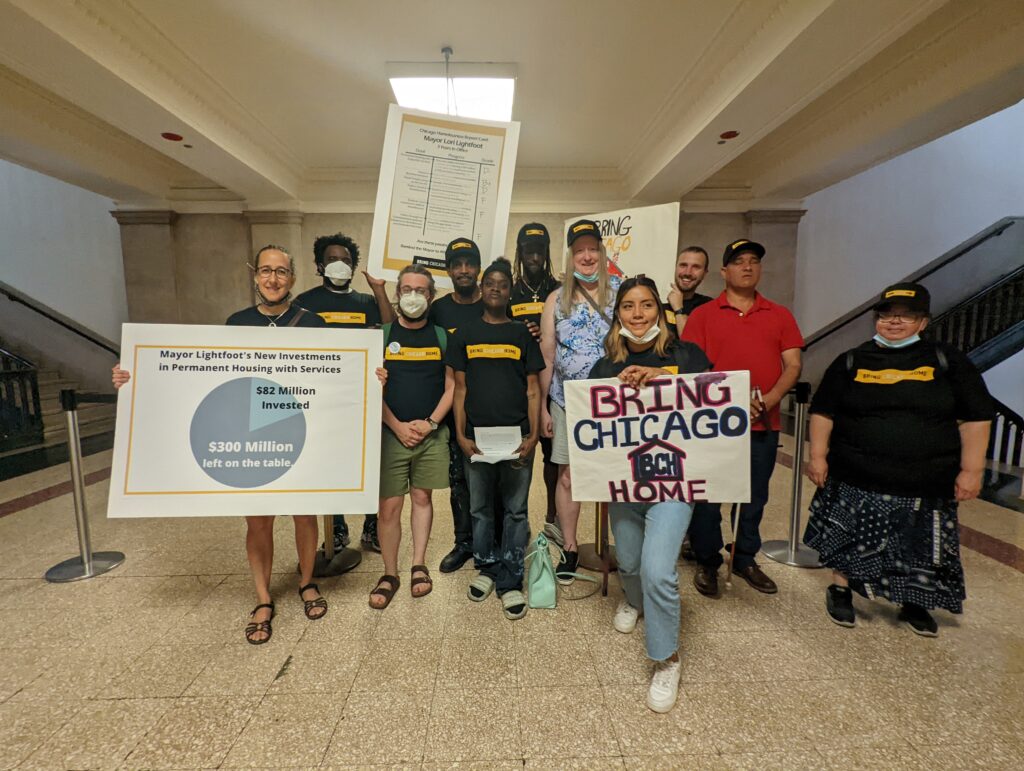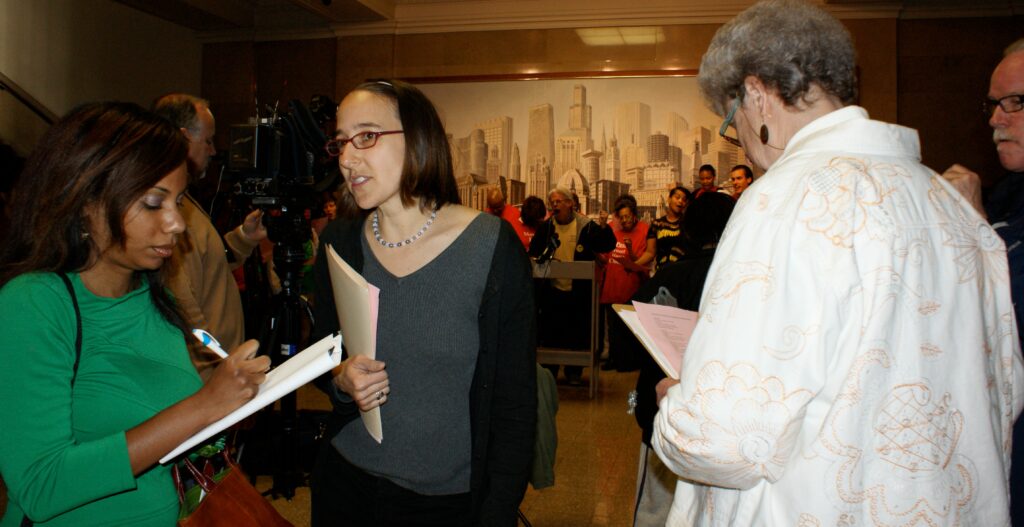Above: Taishi Neuman a longtime grassroots leader with CCH, member of the Speakers Bureau and CPS focus group and participant in the Horizons creative writing program. Though she was hesitant to write and publicly recite her poetry when she first joined Horizons two years ago, Ms. Neuman now appreciates the power of creative writing. “When you read poetry, it helps you. Because I love it now. I read not only my poetry, I read other people’s poetry.”
Horizons Creative Writing
CCH’s creative writing program Horizons offers creative writing workshops to parents experiencing homelessness who live at family shelters, as well as residents of adult shelters located in Chicago. Horizons was launched in 2007 by Director of Organizing Wayne Richard, a staff member since 2000. Wayne first became involved with CCH as a grassroots leader, when he lived in a West Side shelter that hosted an earlier version of the writing program.
“Everyone has a song to sing,” says Wayne, pointing to pieces written by participants that range from emotional to wistful, hopeful to angry. Most of the writing is “about relationships to someone or something – the lack of, or need of, or appreciation of relationships.”
Horizons poets, Taishi Neuman and Brooklyn Silas recently showcased their poetry.
Taishi Neuman has been involved with CCH for 11 years as a grassroots leader, as well as participating in the Speakers Bureau and CPS focus group. Poetry has helped her unpack her experience with homelessness and express the words in her heart. Neuman’s poem “Life Journey,” featured above and on YouTube, outlines many of her own experiences.
For Brooklyn Silas, participating in Horizons gives her an opportunity to express her feelings and be in solidarity with others when taking action isn’t always an option.


